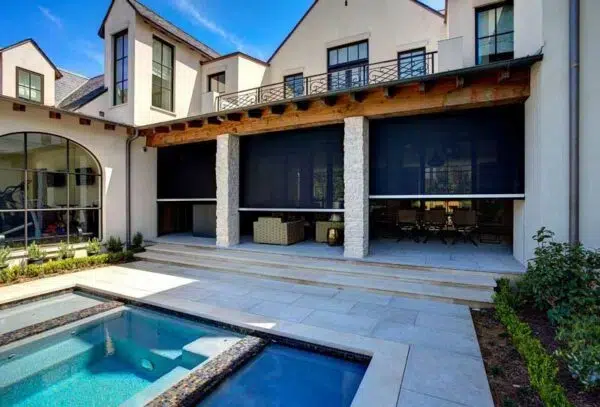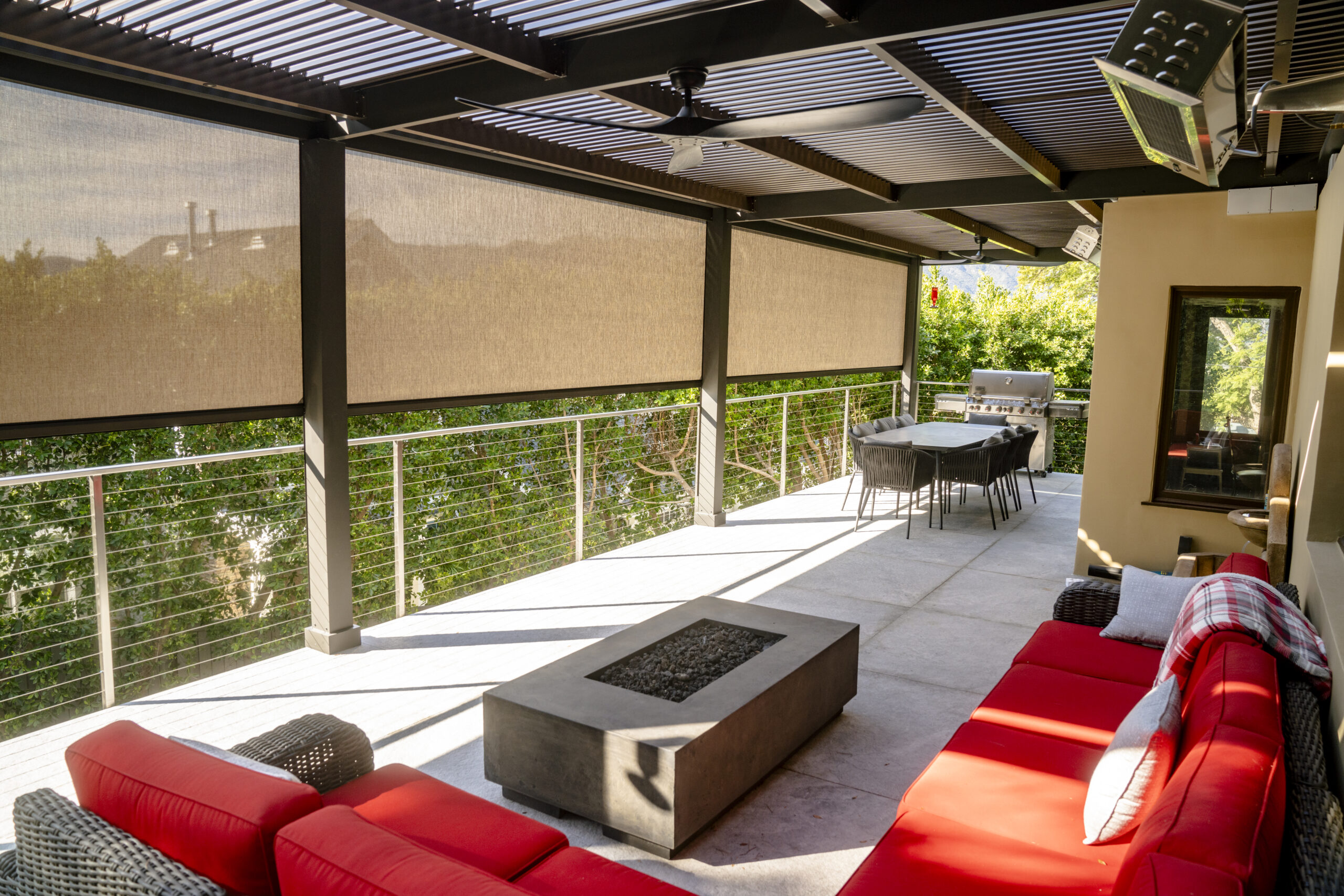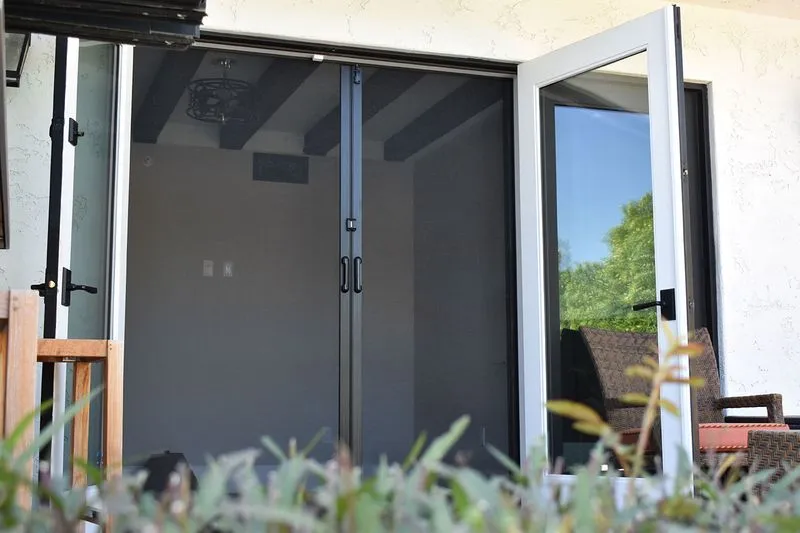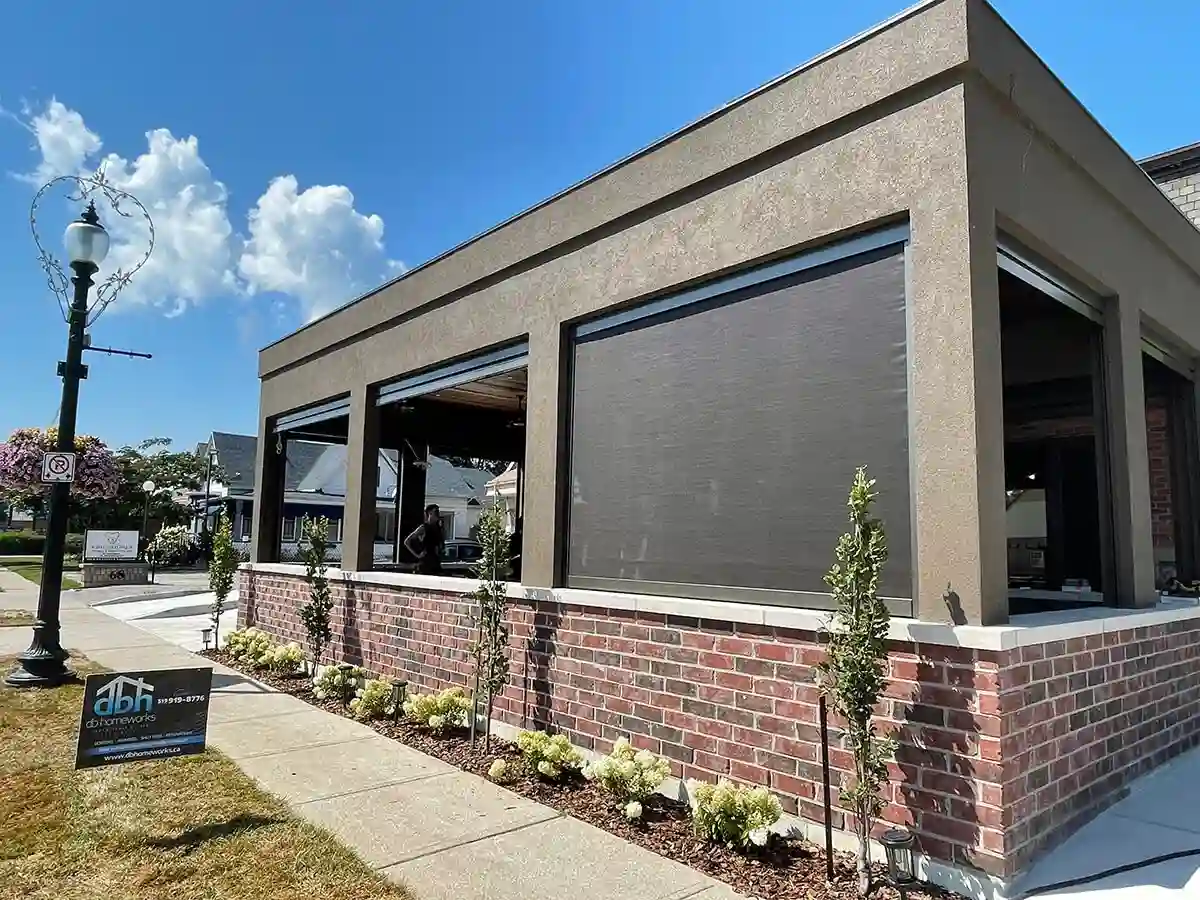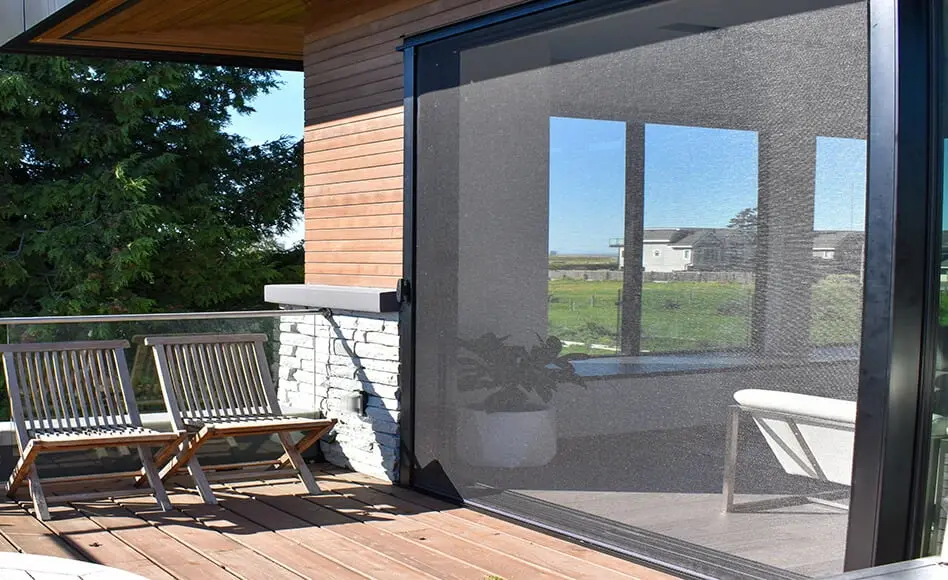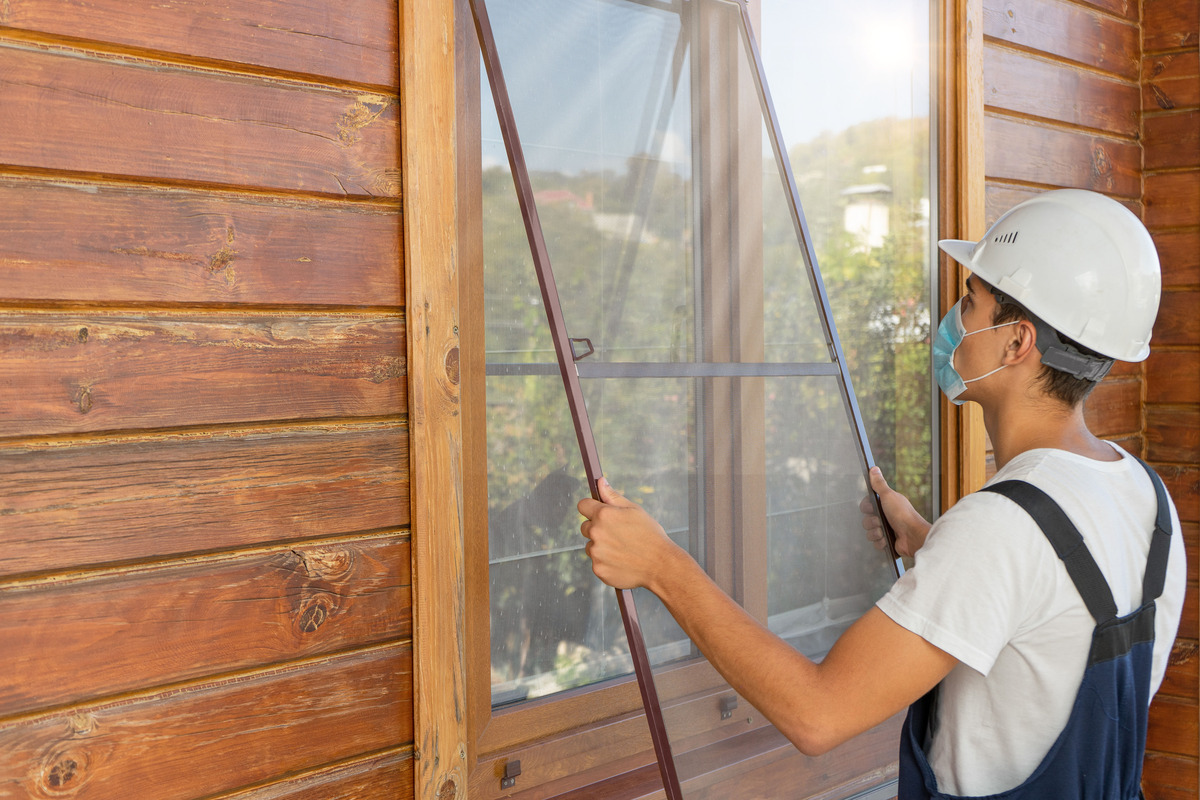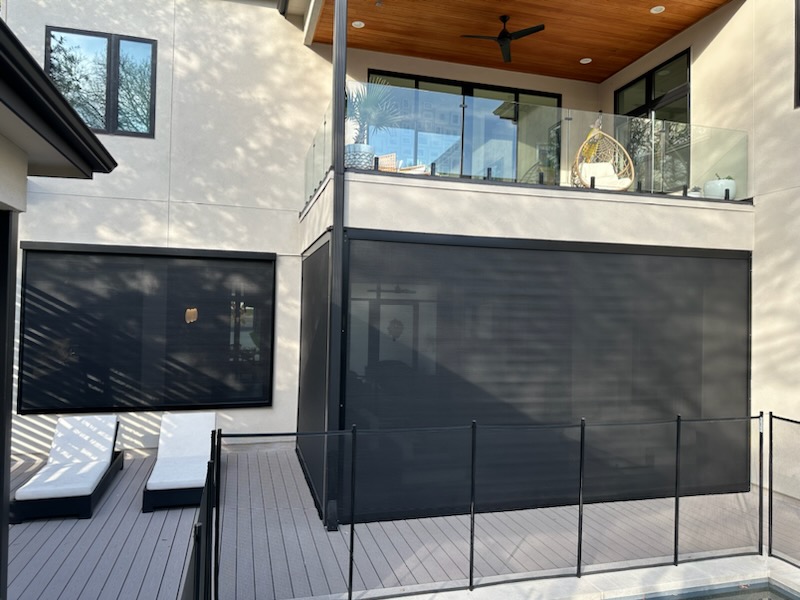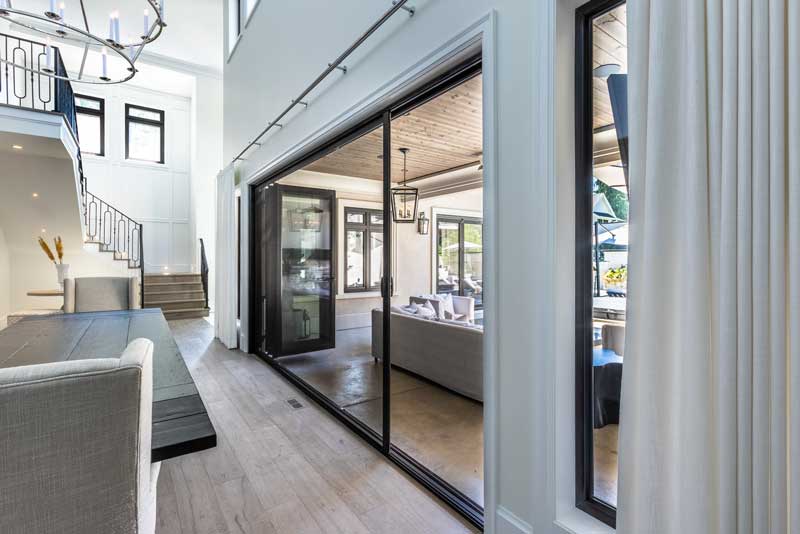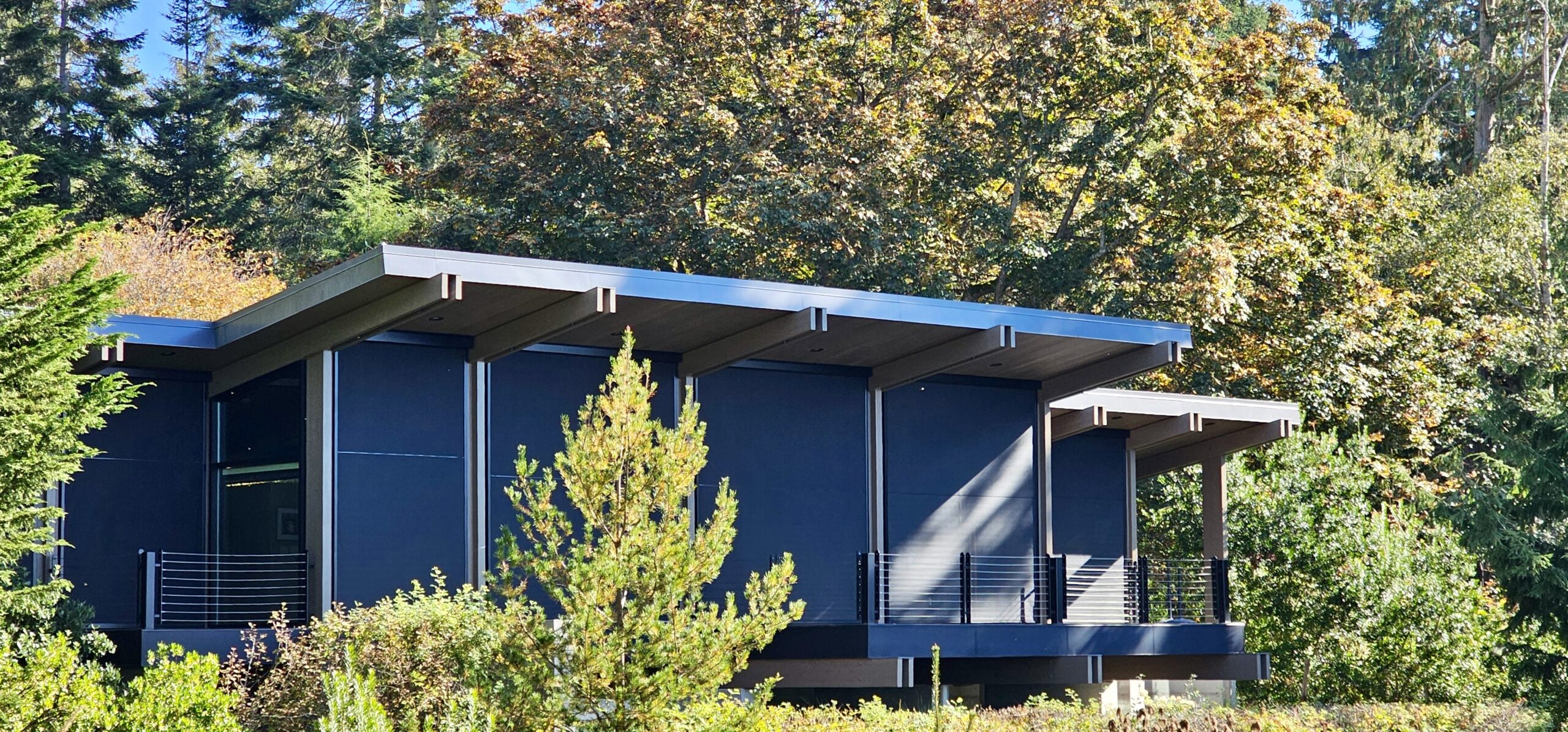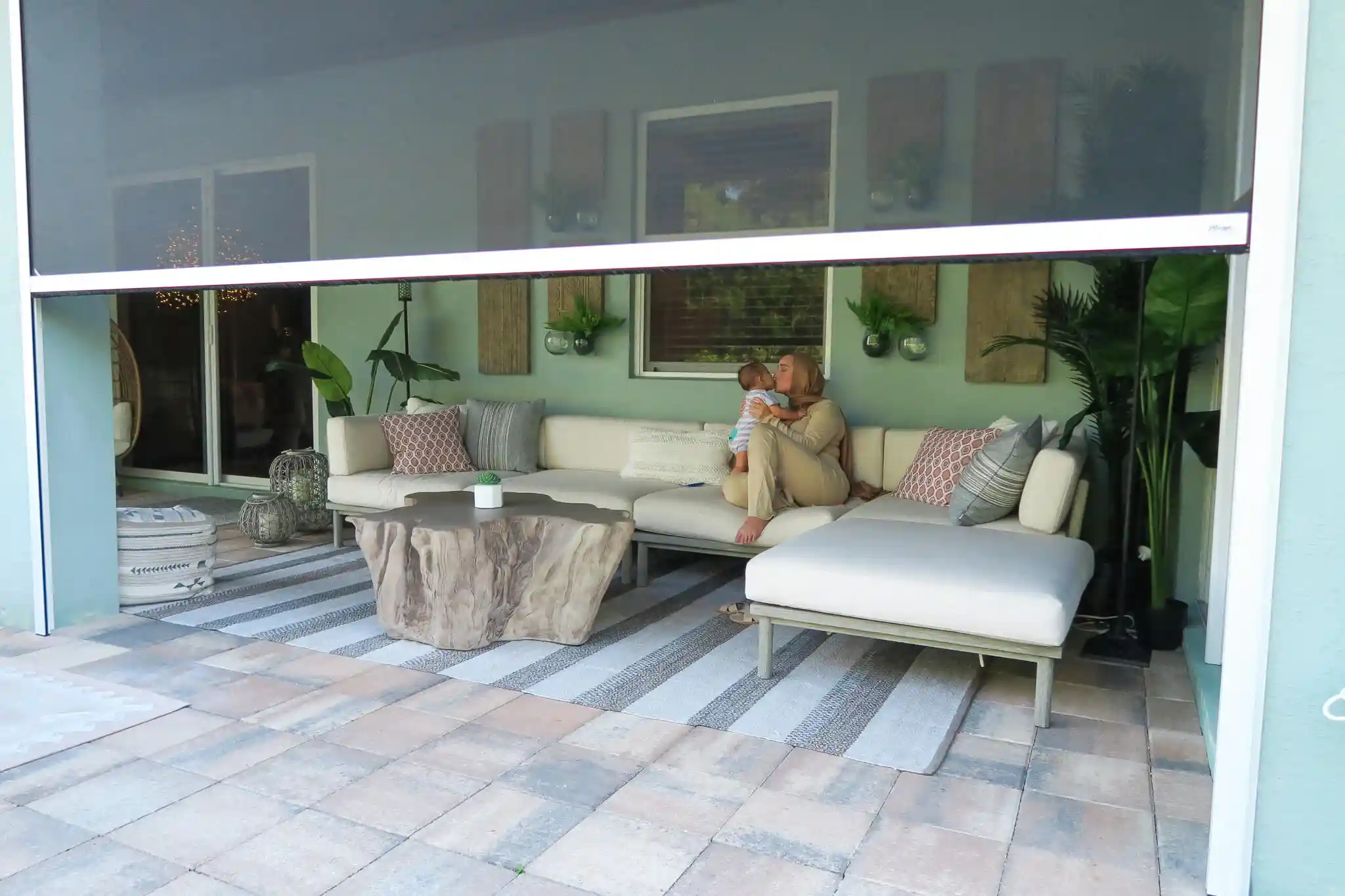A pool enclosure is a great addition to your home and will offer many benefits to enhance the overall living experience. A pool enclosure is a structure that surrounds a pool area and will offer protection from outside weather elements, insects, debris, and will enhance privacy and safety.
Installing a pool enclosure to cover your pool area will also help keep the space clean with less maintenance as it won’t allow leaves and other things that would typically fall into the pool. Pool enclosures have been popular in Florida and other southern states for a while now, but more homeowners are installing pool enclosures as they see them as an advantage and complete the pool area.
What is a Pool Enclosure Screen?
A pool enclosure is a structure that surrounds and covers your outdoor pool area to keep insects, weather elements, debris, and will add more safety. Pool enclosures are often made of a wood or aluminum frame that has metal or fabric mesh in the frame that keeps insects and debris out while allowing fresh air to flow through. Pool enclosure screens also add safety to your pool area as children and animals won’t be able to walk or fall into the pool easily.
Benefits of Pool Enclosure Screens
Adding pool enclosure screens to your outdoor pool area will bring many benefits to your home, enhancing the overall experience for you, your family, and your house guests. More homeowners are opting to add pool enclosure screens to their homes as it completes their pool area and pays for itself in advantages and by increasing the value of their home.
Cleanliness
Depending on where you are located, your screen may become dirtier than other areas due to weather. Keeping the screen clean is of the utmost importance to keep it running for years to come. Wipe your screen down with a wet towel to get the residue off, if you notice it gets dirtier than normal, you can add soap to it.
For screens that are oceanfront, you may notice salt build up. Make sure to also wipe the debris out of the tracks and spray silicone spray along them to keep them lubricated and running smoothly.
If you consistently clean them, you will keep your screen operating at peak performance and it will look like new.
Provides UV Protection
If you are looking for UV protection, you will want a thicker and darker screen, so look for a more opaque screen. This will provide sun protection. Our Sun control fabrics or blackout fabrics will give you the best UV protection. When you are enjoying your outdoor area, like pool enclosures, you will want it to be as comfortable as possible.
Privacy and Comfort
Privacy for your pool area is important. You want to feel comfortable in your own pool area without people looking in.
Extends Pool Usage
Pool enclosure screens help extend the usability of your pool by keeping out unwanted debris and insects, making maintenance easier. They also provide shade and a level of climate control, making swimming more enjoyable even in extreme weather conditions.
Better Aesthetics
A well-designed pool enclosure with screens enhances the overall look of your outdoor space. It creates a polished and sophisticated appearance while maintaining an open and airy feel, blending seamlessly with your home’s landscaping.
Types of Pool Enclosure Screens
Depending on where you live and the configuration of your home, will determine what the best type of pool enclosure screens will be for you.
Pool enclosures are typically made of wooden or metal frames, but the mesh or material you have installed in the frames can vary from a fiberglass mesh screen, aluminum mesh, or privacy mesh that will depend on the onlookers from looking into your pool area.
Your local Mirage dealer will be able to guide you in choosing the best type of pool enclosure screens for your home.
Standard Fiberglass Screens
Standard fiberglass screen is the most common mesh screen you will find in your typical door or window screen. The weave of this screen is typically an 18×16 count, which will keep most insects outside while still allowing adequate airflow through.
Color options for standard fiberglass screens are typically gray or charcoal,l but you will have to consult with your Mirage retractable screens dealer about color options.
Pet-Resistant Screens
Pet-resistant screens are a coated polyester mesh that is durable and will withstand most animals from scratching or tearing through the mesh. These types retractable of screens are the best option if you have furry friends in your home to keep your screens lasting a long time.
Pet-resistant screens will still allow adequate airflow through the mesh so you don’t have to worry about compromising for that.
Retractable Screens
Retractable screens for pool enclosures provide flexibility, allowing homeowners to enjoy an open space when desired while still having the option to screen in the area when needed. These screens offer protection from insects and debris while allowing fresh air to circulate freely. They also enhance convenience by being easily adjustable, making them ideal for different weather conditions and personal preferences.
Privacy Screens
Privacy screens for pool enclosures add an extra layer of shielding your pool area from neighbors and passersby. These screens are designed to limit visibility while still allowing airflow and light transmission. They enhance the overall pool experience by creating a more intimate and relaxing atmosphere, making them a great choice for homeowners who value privacy.
Materials Used in Pool Enclosure Screens
Fiberglass
Fiberglass screens are the basic option for a screen mesh. They are more translucent so it’s more visible and the most cost effective. They are highly flexible and lightweight. Depending on your needs, the installer will recommend this fabric or another.
Aluminum
Aluminum mesh is generally considered more durable and resistant to tearing, while fiberglass mesh is more flexible and easier to install. They withstand corrosion, provide shade, UV protection and privacy.
Polyester Mesh
Polyester mesh is generally considered more durable, tear-resistant, and better suited for long-term use, especially in applications with high stress or frequent movement, while fiberglass mesh is more affordable and readily available, but may become brittle over time and is less resilient to damage
Vinyl-coated Screens
Vinyl coated screens are protection from rain, wind, and sun. They are mesh coated in vinyl, so similar to polyester screens and fiberglass, they can screen spaces for porch enclosures for restaurants, lanais, outdoor dining areas, standard doors, and French Doors.
Factors to Consider When Choosing the Right Pool Screen
When it comes to choosing the right pool screen for your home, it depends on your home and your needs. A few factors can cause you to choose one or the other. Local climate, size and shape of the pool area, privacy, budget, and the care and maintenance.
Local Climate
The climate in your area plays a significant role in choosing the right pool enclosure or covering. If you live in a region with harsh winters, heavy snowfall, or strong winds, a sturdy and durable enclosure made from reinforced materials like aluminum and polycarbonate panels may be necessary to withstand the elements.
For areas with high humidity and frequent rain, proper ventilation is key to preventing mold and mildew buildup inside the enclosure. Mesh screens and retractable enclosures allow for airflow while keeping out debris and insects.
In hot and sunny climates, UV protection is a major factor. Tinted or UV-resistant materials can help reduce sun exposure, keeping the pool area cooler and more comfortable while also protecting poolside furniture from fading.
Size and Shape of the Pool Area
The dimensions and layout of your pool area play a crucial role in determining the type of enclosure or covering that will work best. A standard rectangular pool may have more straightforward enclosure options, while freeform or uniquely shaped pools may require custom solutions.
Consider whether you need the enclosure to cover just the pool or include surrounding deck space for added comfort and usability. A well-fitted enclosure should complement the pool’s design while maximizing functionality.
Level of Privacy
Privacy is an important factor when designing a pool area, especially for homeowners who want to create a secluded and relaxing retreat. Enclosures and screens can provide varying levels of privacy, depending on the materials and designs used.
Solid panels, tinted glass, or fine mesh screens can shield the pool area from prying eyes while still allowing airflow and natural light. If your pool is in a high-traffic neighborhood or close to neighboring properties, investing in a more enclosed design can enhance your sense of security and comfort.
Budget and Long-Term Maintenance Costs
The cost of a pool enclosure or covering extends beyond the initial installation. When budgeting, consider materials, customization options, and durability.
Aluminum and high-quality mesh screens tend to be more affordable and low-maintenance, while glass enclosures and motorized retractable covers may have a higher upfront cost but offer long-term benefits in durability and aesthetics.
Additionally, factor in maintenance costs such as cleaning, repairs, and potential replacements over time. Investing in high-quality materials can help reduce long-term expenses and ensure your enclosure remains functional and visually appealing for years to come.
Pool Enclosure Screen Repair and Maintenance Tips
To keep your pool enclosure looking beautiful for years, all you need to do is follow these repair and maintenance tips:
- Clean the door’s tracks by brushing out the leaves, dirt, and small stones that accumulate there.
- Annually wash the mesh screen and frames with soap and water and dry them using a soft cloth.
- Lubricate the tracks with quality silicone spray after washing them.
- Clean the door’s tracks with a mild solution of water and dish soap to prevent buildup.
- Inspect for loose connections or bent frames and repair them.
- Check the weather stripping and seals every year for wear and replace as needed.
- Trim nearby plants and trees to prevent branches from poking or scratching the screen.
Frequently Asked Questions (FAQs)
Pool enclosures help with pest and debris control because they cover your pool area, which will block them from getting inside. Some small insects or nats may still be able to get through the pool enclosure, but leaves and other debris will be kept out. If you have nats or other small insects in your area, please let the contractor know so they can offer you a mesh solution that will prevent these types of bugs from entering your pool area.
Pool enclosure screens can provide some levels of UV protection depending on the type of material that you have installed in the frame. A solar mesh that has a 90 degree or above will block at least 10% of sunlight from entering your pool area, which will offer solid UV protection. If you want to block more than 10% of the sunlight and UV rays from entering your pool area, we recommend that you get a 95, 97, or 99 grade mesh installed in the frame of your pool enclosure.
Pool enclosure screens can typically last between 5 to 20 years depending on the type of material that is used, care and maintenance, and weather conditions in the area of your home. Many factors can contribute to pool enclosure screens wearing down or breaking, but we are confident that if you take care of them, they can last up to 20 years.
Yes, there are different types of pool enclosure screens for various needs. The main types of pool enclosure screens you can choose from when having pool enclosures installed in your pool area are fiberglass screens, pet-resistant screens, solar screens, privacy screens, and super screens.
.png)
